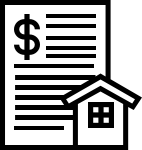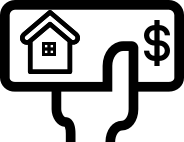Legal FAQs for Renters in Iowa
This page has local legal information on residential (not commercial) renters’ issues. It is not legal advice, and you should check with your local legal aid and courts for current information.
This page was last updated on Jan 11th, 2023. It was reviewed by our volunteer attorney experts.
Table Of Contents
Jump to the section that matches your situation
Emergency Protections during COVID
Do Iowa renters have any special protections during the COVID-19 emergency?
Iowa's statewide emergency protections for renters have expired.
Landlords may now try to sue tenants to evict them. If you are worried about an eviction, reach out as soon as possible to your local legal aid group. The lawyers may be able to help you find protections and services to deal with your eviction.
Earlier Protections
Earlier, Governor Kim Reynolds issued a proclamation preventing most evictions in Iowa before May 27, 2020. Evictions have since resumed. Before it expired, your landlord could not evict you for nonpayment of rent, for noncompliance with the lease, or for staying in your home after the lease has terminated. Your landlord could still evict you if you have created a clear and present danger. After May 27, 2020, Iowa renters no longer have these protections and evictions have resumed.
Iowa renters may also have been eligible for the national CDC eviction ban. That expired on August 26, 2021.
What do the protections mean for Iowa renters?
Since the emergency protections have expired, then in Iowa:
- Your landlord can serve you with a notice for nonpayment of rent or noncompliance with the lease.
- Your landlord can evict you for nonpayment of rent, for noncompliance with the lease, or for staying in your home after the lease has terminated.
- Courts may still hear an eviction case.
- Law enforcement may remove you from your home if there is an eviction court order.
Do I still have to pay rent during the emergency?
Yes, Iowa renters still need to pay rent during the emergency.
You may have been protected from eviction, but now that those protections are over, you may be sued and you still owe all your rent.
Also check with your local city or county government to see if they give renters any additional protections if they are struggling to pay rent during the emergency.
If you cannot pay rent, take steps to protect yourself:
- Apply for rental assistance immediately: If you need financial assistance for housing costs like rent or utility bills., you may be able to get help. The Iowa government has established a special rental assistance fund for renters who can't pay rent because of COVID-19.
- Communicate with your landlord: Send a written letter or email to your landlord as soon as possible. You can also try to negotiate with your landlord to make a payment plan or get a temporary rent reduction. Get help here for drafting and mailing a letter to your landlord. You can also use this letter-writing tool here. Iowa Legal Aid has more information on communicating with your landlord.
- Get written records of all communication: Keep copies of any letter or email you send, and any responses from the landlord. Keep receipts for any payments you make, that are signed and dated. If you make a payment plan or rent agreement, make sure to get it in writing.
- Keep proof of COVID-19’s impact on you: Collect documents about your COVID-19-related employment problems, health care issues, or other issues that affect your ability to pay rent. This includes letters from your employer, doctor, insurance provider, child care provider, schools, etc.
Can my landlord evict me during the emergency in Iowa?
Landlords can sue tenants for eviction since the Iowa protections ended on May 27, 2020.
If you receive a notice to quit from your landlord, or an eviction lawsuit, reach out for legal help.
Can my utilities be shut off during the emergency in Iowa?
Electricity and gas can be shut off by the power companies, since the statewide moratorium ended May 27, 2020.
There are other ways to avoid a utility shut off:
- You may be eligible for a 30-day extension for health related reasons. Contact your utility provider to explain your situation and request an extension.
- Everyone is entitled to at least one payment plan. Payment plans must be based on your actual ability to pay. Contact your utility provider to request a payment plan, and get in touch with lawyers if you need help negotiating a plan that fits your ability to pay.
- If you are unable to get a payment plan you can afford, you should not agree to that plan. You have the right to file an informal utility board complaint.
If you need financial assistance for utility costs, you may be able to get help to cover these costs.
Landlords are never allowed to shut off a renter's utilities in an attempt to force the renter out. This is an illegal eviction. Reach out to a lawyer for help if this happens to you.
What if I need repairs during the COVID-19 emergency?
Tell your landlord about any repairs needed, particularly if they affect your health and safety.
The emergency may delay your landlord's ability to make repairs, but if they are urgent you should call your landlord to make the repairs as soon as possible.
Emergency repairs could be for problems with:
- Running water or hot water
- Heat
- Stove, refrigerator, or oven
- Electricity
- Bathroom use
- Missing doors, locks, or windows
- Pests
If your landlord doesn't make the repairs promptly, send them a written letter or email about the need for emergency repairs and keep a copy of this communication.
Can I break my lease during the COVID-19 emergency?
You may be able to break your lease if you can come to an agreement with your landlord.
Your lease is still valid despite the emergency period. However, you can talk to your landlord to see if they will agree to let you leave early. If they agree, be sure to get the agreement in writing.
Also, you can review your lease. It may have a part that lets you end the lease early in times of financial difficulty. If your lease has this kind of part, you might be able to break the lease, in some cases penalty-free.
Find legal help to get advice for your situation.
What do I do if my landlord tries to evict me during the COVID-19 emergency?
Contact a legal help organization to help defend yourself.
It is illegal for your landlord to evict you without first going to court and getting an eviction order. To remove you from your home, a landlord must file an eviction lawsuit against you, win the case, and get an eviction order from the court.
Legal aid groups might be able to provide you with full representation, or other legal organizations can give you information or brief advice.
Find legal help to protect your rights.
Are eviction cases still proceeding through court in Iowa?
Most eviction hearings in Iowa have mostly resumed.
Earlier, some cases had been postponed until on or after June 15, 2020. Contact your local Iowa court for more information.
Did I have eviction protections under the CARES Act?
Renters in 3 categories have special national protections against being evicted during the Emergency Period of March 27, 2020 to July 24 or 25, 2020. These national protections add onto any state and local protections you have.
Do you fit in any of these 3 categories?



If you are a renter in one of these 3 categories, the federal CARES Act section 4024 gives you these protections. (Remember, these protections add onto any state and local protections you have)
- Your landlord cannot file a new eviction lawsuit against you for not paying your rent during the Emergency Period. They can still evict you for other behavior, like drug abuse, other criminal activities, or other lease violations.
- Your landlord cannot charge you new fees or penalties for not paying your rent during the Emergency Period.
- After the Emergency Period ends, your landlord may not be able to evict you immediately.(Different states interpret the protections ending on July 24 or 25. Check with local lawyers to see about your state). If you have not paid your rent in full during the Emergency Period, your landlord must wait until the period ends before giving you a notice to vacate. For example, they may give you a notice on July 26, and you must be allowed until at least August 25 to leave the property.
For more help on these national protections, reach out for legal and financial help here. Also, use this tool to write a letter to your landlord if you are having issues with rent or eviction.
Behind on Rent?
Who can help me with rent that I owe?
If you are behind on rent, you can get help from your local Rental Assistance program. This is a government service to help people who owe rent or utility bills.
Especially if you are behind on rent because of COVID-19 hardships, your local Rental Assistance (or Rent Relief) program can help you.
Find your local Rental Assistance program at your Get Help page here.
Am I eligible for rent relief?
Local governments set the rules about who is eligible for rent relief. Most programs focus on people who have suffered COVID-19 hardships.
You can talk to your local Rental Assistance program to learn their eligibility rules.
You may have to show your household income, or if you are on other benefits programs like SNAP.
You may also have to show that you are at risk of homelessness or eviction if you don't get rental assistance.
Check with your local Rental Assistance program to see if you are eligible.
Does immigration status matter for rent relief?
Many local Rental Assistance programs are open to everyone, regardless of immigration status. Many programs do not even ask about immigration status.
Check with your local Rental Assistance program to make sure about eligibility rules and immigration.
Can a landlord apply for their renter, to get rental assistance?
Most Rental Assistance programs let landlords apply.
Either a renter or a landlord can start the application.
The landlord will have to fill in as much information they have about the amount of money needed, and the eligibility for the program. The tenant may have to fill in the rest of the information.
Check with your local Rental Assistance program about the steps to follow to apply for rent relief.
Get Help From Local Groups
Find Local Legal Help
Find legal groups that can help you with housing problems, landlords, roommates, Section 8, domestic violence, discrimination, and more.
Find Legal ServicesFind Financial Assistance for Housing Costs
Find groups that can help you pay the rent, cover utility costs, and get other housing-related assistance.
Find Financial HelpFind Other Services to Help You
Find help with other problems, like domestic violence, health coverage, food benefits, mental health, and other issues.
Find Other ServicesState information is taken from these sources:Iowa Governor proclamationIowa courts postponementIowa Legal AidIowa courts COVID-19 infoPrinceton Eviction Lab's COVID Policy ScorecardsColumbia Law School COVID-19 Eviction Moratoria analysisEnergy and Policy Institute Utility Disconnect Tracker
Don’t see your question here?
Ask it using this form, and we may add it to our FAQ list.